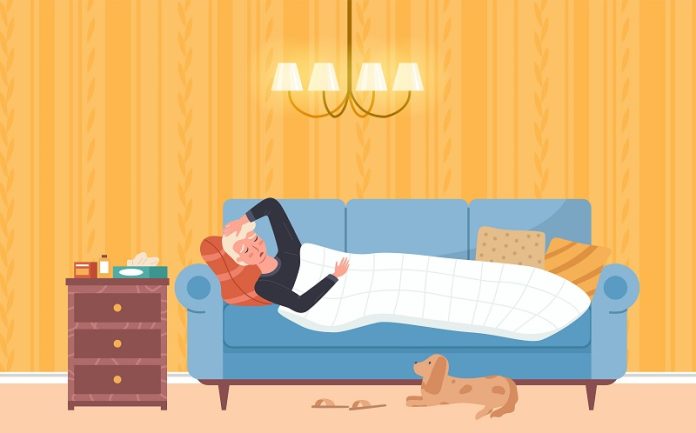
A new study suggests that a medication called ubrogepant could help stop migraines in their tracks if taken at the first signs of an attack, even before the headache pain begins.
The research, published in Neurology, shows that this drug may allow people with migraines to continue their daily activities with little or no disruption.
Ubrogepant is a type of medication known as a calcitonin gene-related peptide (CGRP) receptor antagonist.
CGRP is a protein involved in the migraine process, and by blocking it, ubrogepant can help prevent migraines from developing into full-blown headaches.
The study was led by Dr. Richard B. Lipton of the Albert Einstein College of Medicine in New York. Dr. Lipton explained that migraines are a common condition worldwide, but many people don’t receive effective treatment.
“Our findings are encouraging,” he said. “Ubrogepant may help people with migraines function normally and go about their day.”
The study included 518 participants who had been experiencing migraines for at least a year, with two to eight migraine attacks per month.
These participants were able to recognize early warning signs of a migraine, such as sensitivity to light and sound, fatigue, neck pain, or dizziness, which allowed them to predict when an attack was about to occur.
Participants were divided into two groups. One group took a placebo when they noticed early migraine symptoms and then took 100 milligrams of ubrogepant for their next migraine episode. The other group did the opposite: they took ubrogepant first and then a placebo for their second attack.
Participants tracked how much their migraines limited their activities using a scale from 0 to 4, with 0 meaning “not at all limited—I could do everything,” and 4 meaning “extremely limited.” After 24 hours, 65% of those who took ubrogepant reported little to no limitation in their activities, compared to 48% of those who took the placebo.
Even within two hours of taking the medication, people who took ubrogepant were 73% more likely to report that they could function normally without any disability compared to those who took the placebo.
Dr. Lipton highlighted that this treatment could significantly improve the quality of life for people with migraines who can reliably predict their headaches based on early symptoms. However, he also noted a limitation of the study: participants recorded their symptoms and medication use in electronic diaries, so there is a chance that some information may not have been recorded accurately.
Overall, the study offers hope that early intervention with ubrogepant could help people with migraines manage their symptoms more effectively, allowing them to maintain their daily routines with minimal disruption.
If you care about pain, please read studies about how to manage your back pain, and Krill oil could improve muscle health in older people.
For more information about pain, please see recent studies about how to live pain-free with arthritis, and results showing common native American plant may help reduce diarrhea and pain.



